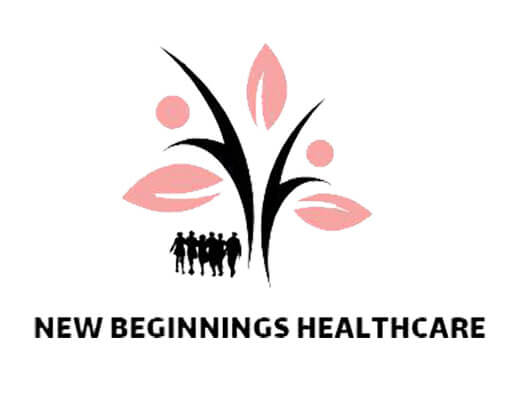Hypertension, commonly known as high blood pressure, can quietly damage your body for a long time before any symptoms develop. If left unchecked, it can lead to heart disease, stroke, and other health problems. However, the good news is that hypertension can often be managed or even prevented through simple lifestyle changes.
Whether you have been diagnosed with hypertension or are looking to prevent it, here is how making certain adjustments to your way of living can have a profound impact on your health.
5 Lifestyle Changes to Manage Hypertension
1. Healthy Eating Habits
One of the first things you can do for managing and lowering blood pressure is to build healthy eating habits.
Adopt the DASH Diet
The Dietary Approaches to Stop Hypertension (DASH) diet exists to help manage blood pressure.
It encourages eating more fruits, vegetables, whole grains, and lean proteins, while limiting salt, red meat, and added sugars.
Limit Sodium Intake
Even a small reduction in sodium can significantly lower blood pressure. Aim for less than 2,300 mg a day, or even better, less than 1,500 mg if possible.
Watch Your Weight
Being overweight can strain your heart and can increase blood pressure. Losing even 5% of your weight can help reduce your risk.
These healthy eating habits can help, especially for the management of resistant hypertension.
2. Regular Physical Activity
Regular physical exercise can help lower blood pressure and keep your heart healthy. Aim for at least 150 minutes of moderate aerobic exercise, like walking or swimming, each week.
Incorporating strength training exercises at least two days a week can also benefit blood pressure and overall health.
3. Limit Alcohol and Quit Smoking
Drinking alcohol can raise your blood pressure. It is advised to limit alcohol to no more than one drink a day for women and two for men.
In addition, every cigarette you smoke increases your blood pressure for many minutes after you finish. Quitting smoking can help bring your blood pressure down to a normal range.
4. Stress Management
Chronic stress may contribute to high blood pressure. Finding ways to reduce stress through relaxation techniques can help. You can start with:
- Deep breathing
- Meditation
- Yoga
5. Monitoring and Support
Regularly monitor your blood pressure at home and consult with your healthcare provider to make necessary adjustments in your management plan.
Joining a support group or engaging with friends and family can also provide encouragement and motivation to stick to your new lifestyle changes.
When to Visit Your Primary Care Doctor for Hypertension Management
While adopting a healthier lifestyle is a critical step in managing hypertension, regularly visiting your trusted family practice near you is equally important.
Here are several stages when it is crucial to visit your primary care doctor for hypertension management:
Initial Diagnosis
If you suspect you have high blood pressure or if a home monitor shows elevated readings consistently, schedule an appointment for an official diagnosis.
Your doctor will use a series of blood pressure measurements to determine your health status and discuss the next steps.
Regular Check-ups
Once diagnosed with hypertension, regular check-ups are vital to ensure your blood pressure is under control and to adjust your management plan as needed.
These appointments can help identify potential complications early on or with the management of resistant hypertension.
Medication Adjustments
If you are prescribed medication to manage your hypertension, your doctor will need to regularly evaluate its effectiveness and make any necessary adjustments.
This could be due to:
- Side effects
- Changes in blood pressure goals
- Interactions with other medications
Lifestyle Change Guidance
Your primary care doctor can provide personalized advice on lifestyle changes that might be particularly effective for your situation.
They can help you set realistic goals and offer resources for diet, exercise, and stress management.
Evaluation of Symptoms
Visit your doctor right away if you experience any new or worsening symptoms, such as:
- Headaches
- Shortness of breath
- Chest pain
- Dizziness
These could be signs that your blood pressure is not well-controlled or indications of related health issues.
Review of Overall Health
Hypertension does not exist in isolation; it can affect and be affected by other aspects of your health.
Regular visits allow your doctor to review your overall health, including checking for signs of heart disease, diabetes, and other conditions related to hypertension.
Do not hesitate to reach out to your healthcare provider with any questions or concerns you may have regarding your blood pressure or general health. Together, you can work toward achieving and maintaining optimal health.
Comprehensive Management of Resistant Hypertension
Making these changes might seem daunting at first, but remember, you are not alone. With the right support and a commitment to adjusting your lifestyle, managing hypertension can become a manageable part of your life. Start with small steps, celebrate your progress, and remember that each change you make brings you closer to a healthier heart and a healthier you.
You may reach out to our helpful staff today to learn more about our holistic family medicine services. You may also call us if you wish to schedule a visit with the best primary care doctors near you accepting new patients.
We look forward to serving you!

